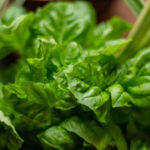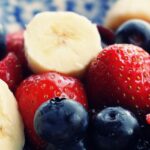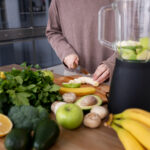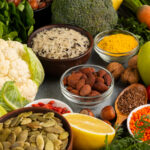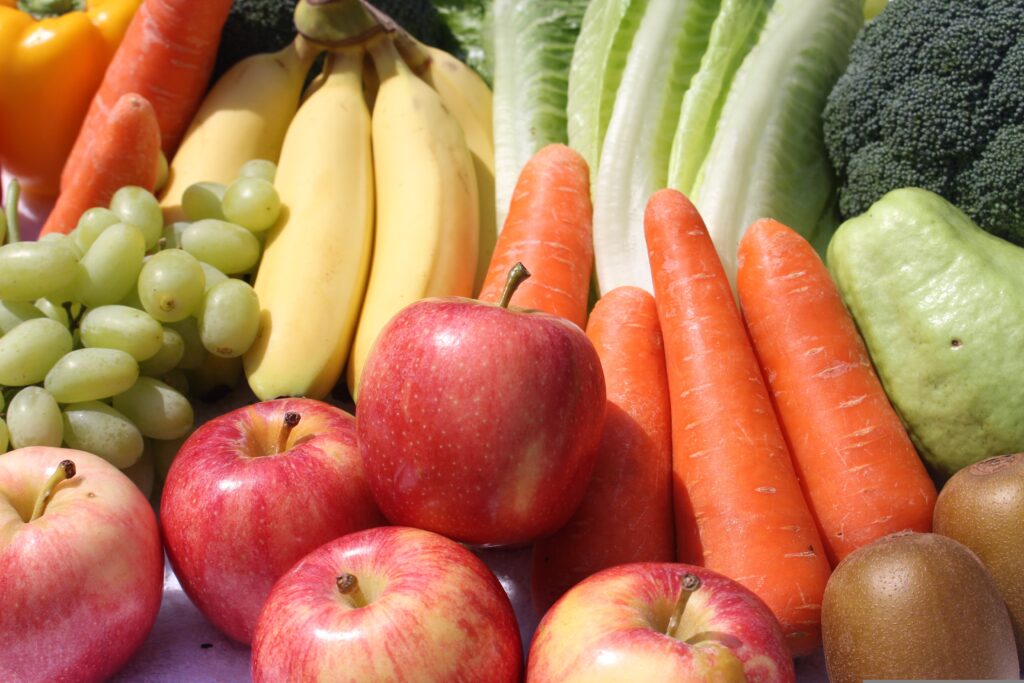
Overview
As spring and summer bring warmer temperatures, staying hydrated becomes more essential than ever. Hydration is crucial for maintaining the body’s proper functions, including regulating temperature, flushing out toxins, and keeping energy levels up. But staying hydrated doesn’t just mean drinking gallons of water. While water is undoubtedly the best way to hydrate, certain fruits and vegetables can also provide a significant hydration boost. In this comprehensive guide, we’ll explore the most hydrating fruits and vegetables and why hydration is vital for your overall health.
Why Hydration is Important
Water is vital to our health for various reasons. It helps regulate body temperature, lubricates joints, transports nutrients, and aids in digestion. Without enough water, your body can start to show signs of dehydration, such as:
- Dry skin
- Fatigue
- Dull skin
- Constipation
- Headaches
In severe cases, dehydration can lead to more serious health concerns, including kidney problems and heatstroke. While the typical advice is to drink around 8 cups of water per day, the amount needed can vary based on body weight, activity level, and climate. According to Sarah Adler, MS, RD, from UCLA Health Sports Performance, you should aim to consume between half an ounce to an ounce of water per pound of body weight each day. Fortunately, hydrating fruits and vegetables can help you meet your daily water intake goals
Related : Best Leafy Green Vegetables for Your Health
Top 15 Hydrating Fruits and Vegetables
Incorporating hydrating fruits and vegetables into your diet not only helps you stay hydrated but also provides essential nutrients like vitamins, fiber, and antioxidants. Here are the top fruits and vegetables that can significantly contribute to your hydration
1. Watermelon (92% Water)
Watermelon is a hydration superstar, containing over 90% water. Its high water content, along with its sweet taste, makes it a summer favorite. Watermelon is not only refreshing but also rich in antioxidants, particularly lycopene, which helps protect against cell damage.
2. Cucumbers (96% Water)
Cucumbers are the most water-rich solid food, containing 96% water. They can be added to salads, sandwiches, or even infused into water for a refreshing flavor. Cucumbers are also low in calories, making them an excellent snack.
3. Iceberg Lettuce (96% Water)
Iceberg lettuce may not be as nutrient-dense as darker leafy greens, but it excels in hydration. Its crispy texture and high water content make it an excellent base for salads, sandwiches, and wraps.
4. Celery (95% Water)
Celery contains about 95% water and is a great source of fiber. Its crunchy texture makes it perfect for dipping in peanut butter or hummus. Celery also contains antioxidants that can help fight free radicals in the body.
5. Strawberries (92% Water)
Strawberries are not only sweet and delicious, but they also pack a hydration punch. In addition to being rich in water, strawberries are high in fiber, vitamin C, and antioxidants.
6. Tomatoes (94% Water)
Though often thought of as a vegetable, tomatoes are technically a fruit and are incredibly hydrating. Tomatoes are also rich in lycopene, potassium, and vitamins A and C. Use them in salads, sauces, or even as a snack on their own.
7. Zucchini (94% Water)
Zucchini is a versatile vegetable that can be grilled, sautéed, or even spiralized into “zoodles.” Its mild flavor makes it easy to incorporate into various dishes while offering hydration.
8. Cauliflower (92% Water)
Cauliflower has gained popularity in recent years as a low-carb alternative to rice and pizza crusts. It contains about 92% water and offers a range of health benefits, including its ability to support digestion and reduce inflammation
Related : Raw vs. Cooked Vegetables Health Benefits and Differences
9. Bell Peppers (92% Water)
Bell peppers, especially the green ones, are high in water content. They are also packed with vitamins C and A, making them a nutritious and hydrating snack or salad ingredient.
10. Spinach (92% Water)
Spinach is not only hydrating but also packed with essential nutrients like iron, calcium, and magnesium. Use spinach in salads, smoothies, or as a base for meals to increase your water intake.
11. Peaches (89% Water)
Peaches are a sweet and hydrating summer fruit. You can enjoy them fresh, canned, or in smoothies. Just be sure to choose canned peaches packed in water or juice rather than syrup to avoid added sugars.
12. Grapefruit (88% Water)
Grapefruit is a hydrating citrus fruit, often in season during winter months. However, be cautious if you’re taking certain medications, as grapefruit can interfere with drug absorption. Always check with your healthcare provider if you’re unsure.
13. Radishes (95% Water)
Radishes are often overlooked, but they are packed with water and offer a satisfying crunch. They’re low in calories and can be added to salads or roasted for a unique side dish.
14. Cabbage (92% Water)
Cabbage is a versatile cruciferous vegetable that provides hydration along with nutrients like vitamin C, fiber, and folate. It can be eaten raw in slaws, fermented into sauerkraut, or cooked in various dishes.
15. Oranges (87% Water)
Oranges are not only known for their vitamin C content but also for their water content. They’re a great hydrating snack, especially in the winter when citrus fruits are in season.
How Much Water Should You Drink Daily?

While eating water-rich fruits and vegetables helps with hydration, it’s still important to drink water regularly throughout the day. The amount of water needed varies depending on factors like weight, activity level, and climate. A general rule is to consume at least 64 ounces (8 cups) of water a day. If you’re exercising or spending time in hot environments, you may need more.
Creative Ways to Stay Hydrated
If you find it difficult to drink enough plain water throughout the day, consider adding a twist by infusing your water with fruits, vegetables, and herbs. Some great combinations include:
- Cucumber and mint
- Watermelon and lime
- Strawberries and basil
These infusions not only enhance the flavor but also provide additional nutrients. Herbal teas are also a great alternative to plain water. Be sure to choose varieties without added sugars or sweeteners.
Debunking the Caffeine Myth

Contrary to popular belief, moderate caffeine consumption doesn’t necessarily lead to dehydration. Recent studies suggest that caffeine, when consumed in moderation, doesn’t have a significant dehydrating effect. However, it’s still important to limit your intake to about 400 milligrams of caffeine per day, which equals about four to five cups of coffee.
The Takeaway
Staying hydrated is crucial for maintaining overall health and wellness. Incorporating hydrating fruits and vegetables into your diet is an easy and delicious way to meet your hydration needs. In addition to drinking plenty of water, adding foods like cucumbers, watermelon, strawberries, and tomatoes can help you stay refreshed, especially during the warmer months
Remember, hydration is not only about water intake but also about supporting your body with nutrient-dense foods that promote optimal health. Make it a habit to include these hydrating foods in your daily diet to stay energized and hydrated all year long.
By following this guide, you’ll not only stay hydrated but also enjoy the many health benefits these fruits and vegetables offer. If you have any concerns about your hydration levels or dietary needs, be sure to consult a healthcare professional for personalized advice
Frequently Asked Questions
- Why is hydration important for the body?
Hydration is essential for maintaining key bodily functions, including regulating temperature, flushing out toxins, aiding digestion, and keeping skin healthy. Dehydration can lead to fatigue, dry skin, constipation, headaches, and even more serious issues like kidney problems. - Can fruits and vegetables really help with hydration?
Yes! Many fruits and vegetables have high water content and can contribute significantly to your daily hydration. In fact, eating water-rich foods like watermelon, cucumbers, and strawberries can provide both hydration and essential nutrients. - How much water should I drink daily if I’m also eating hydrating foods?
While hydrating fruits and vegetables help, it’s still important to drink water. A good general rule is to aim for at least 64 ounces (8 cups) of water per day, adjusting based on activity levels, climate, and body weight. Hydrating foods can supplement but shouldn’t replace your water intake. - Is it possible to eat too many water-rich foods?
Hydrating fruits and vegetables are generally low in calories and high in nutrients, making them safe to eat in abundance. However, moderation is key, especially if you have specific dietary concerns like fiber sensitivity or digestive issues. - Does caffeine dehydrate you?
While excessive caffeine can have a mild diuretic effect, moderate consumption (around 400 mg or 4-5 cups of coffee) doesn’t significantly dehydrate you. You can still maintain hydration while drinking coffee or tea, but it’s essential to balance it with water intake. - Are there any fruits or vegetables to avoid if I need extra hydration?
While most fruits and vegetables are beneficial for hydration, some, like bananas or avocados, are less water-dense. They’re still highly nutritious but don’t contribute as much to your water intake as options like watermelon or cucumbers.
